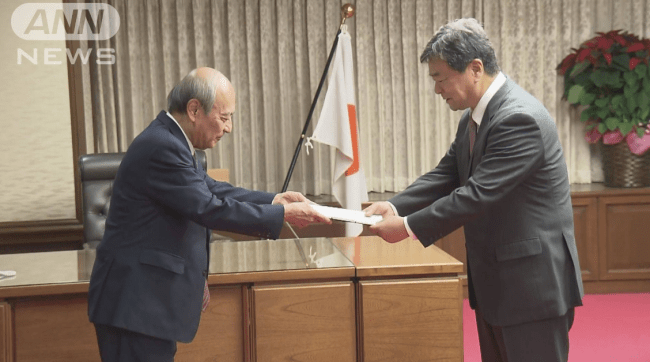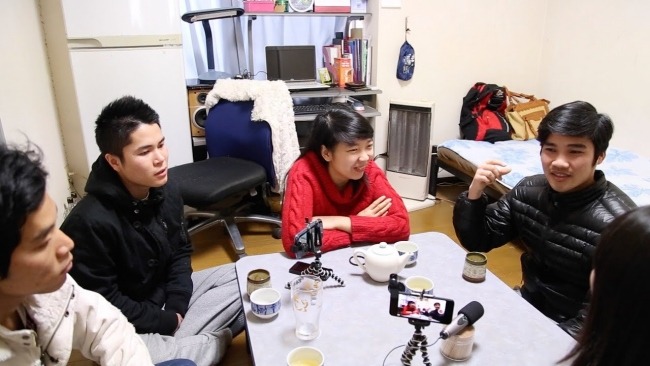In recent days, a panel of experts convened by the Japanese government has compiled a conclusive report urging the abolition of the current system. The report enumerates a series of incidents involving the disappearance of technical interns placed in harsh working conditions and allegations of human rights violations. The proposed replacement system aims to ensure talent development, and its nomenclature will transition to the "Japan Breeding Visa."
While the technical internship system allowed foreign individuals to work and learn skills for up to five years, the expert panel's report highlights the continuous disappearance of interns in adverse work environments and an escalating severity of human rights violations. The existing system is slated for abolition, according to the final report prepared by the expert panel.
Reports indicate that the new system's focus will shift from international contributions to the assurance and training of foreign human resources. It will be renamed the "Japan Breeding Visa System."
The new framework aims to impart professional knowledge and skills to a certain level within three years, emphasizing its alignment with specific skill sets. This entails specialized expertise, and the permitted job categories will be restricted to fields such as nursing, construction, and agriculture.
On the other hand, to transition to specific skills, the new system introduces conditions based on skills and Japanese language proficiency tests. Additionally, mobility to other companies, previously improbable, is now permitted only for employees who have worked in the same field for at least one year, possessing a certain level of skills and proficiency in Japanese.
Regarding the duration, some suggest a maximum of two years, although this hasn't been included to prevent system complexity.
Furthermore, considering that many trainees arrive in Japan after paying substantial fees to dispatch agencies or intermediaries in their home countries, the new system introduces a policy sharing costs with Japanese host companies to alleviate this burden.
The expert panel submitted the final report to the Minister of Justice, Koizumi, on November 30th.

While Employers Harbor High Expectations for the New System, They Also Express Concerns About Increased Burdens
Farmers in Ibaraki Prefecture, who have long hosted technical interns, are anticipating the new system, but they also worry about the escalating burden on employers.
A farm located in Hitachi City, Ibaraki, delivering strawberries to hotels and restaurants in Tokyo, has employed foreign workers for over two decades, currently having 10 individuals from Indonesia, including technical interns.
While some argue that the technical internship system is designed for international contributions, it essentially serves as a means to ensure talent. The CEO of "Farm Farm," Kazutoshi Murata, expressed anticipation for the new system, stating, "We have been recruiting labor and providing training all along, so doesn't this bring us closer to the actual situation?"
Mr. Murata remarked, "Thanks to these interns, we have been able to expand the farm, which has been a significant aid. Even if the system changes, I would like to continue employing them."
On the other hand, under the new system, previously impractical "mobility" will be allowed, but the condition is a minimum of one year of employment.
Currently, for each new technical intern, employers need to cover expenses amounting to around 250,000 to 300,000 yen, including transportation, accommodation, and training fees for the first month after arriving in Japan.
The new system requires Japanese employers to bear the costs that foreign individuals pay to dispatch agencies in their home countries, potentially further increasing economic burdens.
Mr. Murata stated, "Additional costs are painful for farmers. However, training to enhance the skills of learners is necessary, so we will clarify the expenses paid by learners locally. I hope they establish a comprehensive system. Choosing between agriculture and business environments is becoming increasingly challenging, so I want to continue making improvements."
Supporting Organization: We Aspire to Listen to On-site Voices While Establishing A New System
The technical intern support organization acknowledges the positive assessment of the contents of the final report but emphasizes the need to enhance the support system.
The non-profit organization "Japan-Vietnam Friendship Support Association," located in the Minato Ward of Tokyo, has been providing protection for Vietnamese technical interns since 2020.
This organization has received numerous reports from interns experiencing workplace violence, unpaid overtime, or dismissal due to pregnancy. This year, the number of individuals accommodated in shelters has reached 127.
Representative Yoshimizu Jifeng expressed commendation for the reconsideration of the current system in the final report, stating, "I praise the nation for finally reconsidering the attitude of the existing system, which has faced international criticism for 30 years."
On the other hand, he highlighted a major issue, stating, "So far, a significant problem has been the lack of an appropriate response system when issues such as power harassment, sexual harassment, and wage arrears occur. Hello Work and other organizations will provide support for them. However, it might be challenging if one is not accustomed to supporting foreigners. Transitioning to the new system without sufficient systemic support is risky and entails more risks."
He continued, saying, "We need to establish a system that makes young people from abroad happy to come to Japan. I hope they create a new system while listening to the voices of people on the ground."

Expert: "Foreigners and Businesses Need to Closely Monitor"
Tohide Kiuchi, an economist at Nomura Research Institute familiar with the issues of receiving foreign workers, commented on the final report, stating, "For a long time, the 'mobility' issue has been a breeding ground for human rights violations." "Previous restrictions were very strict, but by relaxing conditions, businesses will consider the human rights of learners more than before. I believe this will be a significant opportunity to improve the working environment."
On the other hand, he emphasized the need to establish a system beneficial not only to foreigners but also to the businesses receiving them. Even with efforts to facilitate their skill acquisition, issues may arise. In such cases, the possibility of government support is something to consider for the future.
He added, "Japan's economic status has changed from when the technical internship system was established 30 years ago. While Japan used to have the capability to accept interns from the perspective of making international contributions, wages have not increased, and the yen has depreciated. As a result, unless the treatment and working conditions improve, foreign labor will not come. This review needs to consider the long-term perspective as a system supporting the Japanese economy. In addition to closely monitoring both foreigners and businesses in the specific system design, we also need sufficient flexibility. Once the new system is in operation, if we find it imposes too much burden, we need to conduct a thorough review of the system."





